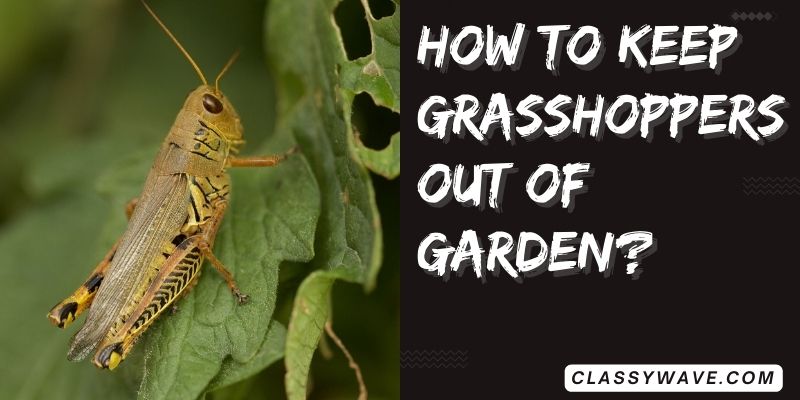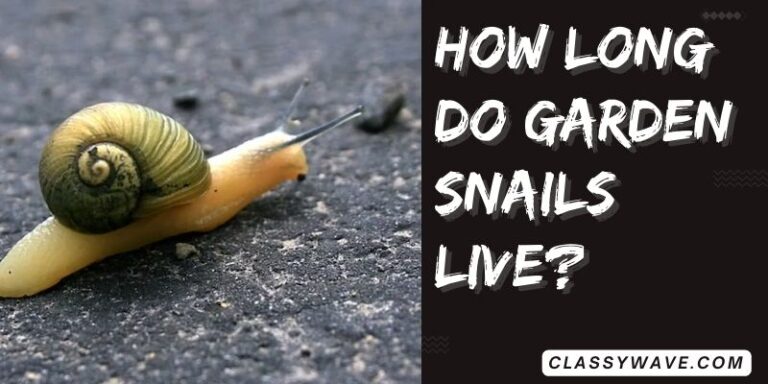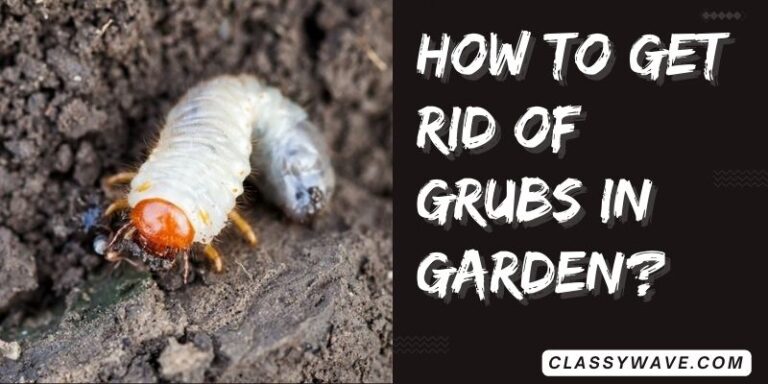how to keep grasshoppers out of the garden? Effective Ways
In gardening, preventing grasshopper infestations is crucial for maintaining a healthy and thriving garden. This guide explores a variety of effective and eco-friendly strategies, from natural repellents and companion planting to understanding grasshopper behavior. Implement these measures to safeguard your garden against these voracious insects and promote sustainable pest control.
Natural Repellents for Grasshoppers
Employing natural repellents like neem oil, garlic spray, or chili powder can deter grasshoppers effectively. These substances disrupt their feeding habits without harming your plants, providing an eco-friendly solution to keep your garden thriving.
Companion Planting Strategies
Implementing companion planting, where certain plants are strategically placed to repel grasshoppers, creates a natural deterrent. Plants like basil, marigolds, or cilantro act as companions, making the garden less attractive to these voracious insects.
Physical Barriers and Garden Netting
Erecting physical barriers, such as garden netting or row covers, forms a protective shield that prevents grasshoppers from accessing your plants. These barriers act as a barrier without impeding sunlight or airflow, maintaining the health of your garden.
Beneficial Predators in the Garden
Encouraging the presence of natural predators like birds, lizards, or predatory insects can help control grasshopper populations. These beneficial organisms contribute to a balanced ecosystem, ensuring that grasshoppers are kept in check without the need for chemical interventions.
Proper Garden Hygiene and Maintenance
Maintaining a clean and well-kept garden reduces the appeal for grasshoppers. Regularly remove weeds, debris, and decaying plant matter as these can attract and provide shelter for grasshoppers. A tidy garden minimizes potential breeding grounds and disrupts their lifecycle.
Homemade Grasshopper Repellent Recipes
Crafting homemade repellents using ingredients like garlic, soap, or vinegar offers an affordable and natural approach to deter grasshoppers. These DIY mixtures can be sprayed on plants, creating an environment that grasshoppers find unappealing while avoiding the use of harsh chemicals in your garden.
Understanding Grasshopper Behavior and Life Cycle
Gaining insight into the behavior and life cycle of grasshoppers enables you to implement targeted preventive measures. By knowing when they are most active or vulnerable, you can time interventions effectively, disrupting their lifecycle and minimizing potential damage to your garden.
Organic Pest Control Measures
Embracing organic pest control methods, such as introducing beneficial nematodes or applying diatomaceous earth, provides an environmentally friendly alternative. These methods target grasshoppers specifically while preserving the overall health of your garden and avoiding the use of synthetic pesticides.
Selecting Grasshopper-Resistant Plants
Choosing plant varieties known for their resistance to grasshoppers can be a proactive strategy. Some plants naturally repel or withstand grasshopper feeding, reducing the likelihood of infestation and minimizing the need for additional protective measures.
Environmental Modifications for Grasshopper Prevention
Making environmental adjustments, like reducing excessive moisture or maintaining proper spacing between plants, creates conditions less favorable for grasshoppers. By manipulating factors such as humidity and plant density, you can discourage grasshoppers from settling in your garden, promoting a more resilient and pest-resistant environment.
Seasonal Timing for Grasshopper Prevention
Adapting preventive measures based on grasshopper activity throughout the seasons is crucial. Understanding their life cycle helps you anticipate and address potential infestations during vulnerable stages, ensuring your garden remains protected year-round.
Integrated Pest Management (IPM) Approaches
Implementing an Integrated Pest Management (IPM) strategy involves a holistic approach to pest control, combining biological, cultural, and mechanical methods. By diversifying control tactics, you create a robust system that effectively manages grasshoppers while minimizing environmental impact.
Beneficial Nematodes
Introducing beneficial nematodes to your garden can be a highly effective and natural solution for controlling grasshopper populations. These microscopic organisms target and parasitize grasshopper larvae, disrupting their life cycle and preventing further damage to your plants.
Neem Oil
Neem oil, derived from the neem tree, serves as a multipurpose insect repellent in the garden. Its natural properties act as a deterrent for grasshoppers while also providing additional benefits, such as fungicidal properties and promoting overall plant health.
Creating a Deterrent Barrier with Diatomaceous Earth
Diatomaceous earth, a powdery substance made from fossilized algae, can be used to create a physical barrier that deters grasshoppers. When applied to the soil or plants, it dehydrates and damages the exoskeleton of grasshoppers, offering an environmentally friendly means of protection for your garden.
Conclusion
In conclusion, safeguarding your garden from grasshopper invasions involves a multifaceted approach that balances natural deterrents, strategic planning, and ecological considerations. By employing these diverse strategies, from companion planting to beneficial nematodes, you not only protect your plants but also contribute to a harmonious and sustainable garden ecosystem. Stay vigilant, understand the seasonal nuances, and embrace these methods to enjoy a flourishing garden while minimizing the impact on the environment.
FAQs
Question: Are grasshopper repellents harmful to plants?
Answer: No, natural repellents like neem oil or garlic spray are safe for plants and effectively deter grasshoppers.
Question: Can companion planting completely eliminate grasshopper damage?
Answer: While not foolproof, companion planting significantly reduces grasshopper attraction to your garden, minimizing potential damage.
Question: How do I attract grasshopper predators naturally?
Answer: Encourage natural predators like birds and beneficial insects by providing food sources and creating a diverse garden habitat.
Question: Are there grasshopper-resistant plant varieties?
Answer: Yes, certain plants like marigolds and cilantro are known for their resistance to grasshopper feeding.
Question: What is the best time to apply diatomaceous earth for grasshopper control?
Answer: Apply diatomaceous earth during dry conditions, directly on soil or plants, for effective grasshopper control.







